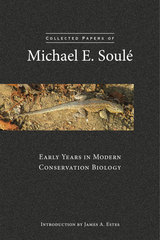
This book is a select collection of seminal writings by Michael Soulé over a thirty-year time-span from 1980 through the present day. Previously published in books and leading journals, these carefully selected pieces show the progression of his intellectual thinking on topics such as genetics, ecology, evolutionary biology, and extinctions, and how the history and substance of the field of conservation biology evolved over time. It opens with an in-depth introduction by marine conservation biologist James Estes, a long-time colleague of Soulé’s, who explains why Soulé’s special combination of science and leadership was the catalyst for bringing about the modern era of conservation biology. Estes offers a thoughtful commentary on the challenges that lie ahead for the young discipline in the face of climate change, increasing species extinctions, and impassioned debate within the conservation community itself over the best path forward.
Intended for a new generation of students, this book offers a fresh presentation of goals of conservation biology, and inspiration and guidance for the global biodiversity crises facing us today. Readers will come away with an understanding of the science, passion, idealism, and sense of urgency that drove early founders of conservation biology like Michael Soulé.
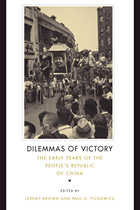
This illuminating work examines the social, cultural, political, and economic dimensions of the Communist takeover of China. Instead of dwelling on elite politics and policy-making processes, Dilemmas of Victory seeks to understand how the 1949-1953 period was experienced by various groups, including industrialists, filmmakers, ethnic minorities, educators, rural midwives, philanthropists, stand-up comics, and scientists.
A stellar group of authors that includes Frederic Wakeman, Elizabeth Perry, Sherman Cochran, Perry Link, Joseph Esherick, and Chen Jian shows that the Communists sometimes achieved a remarkably smooth takeover, yet at other times appeared shockingly incompetent. Shanghai and Beijing experienced it in ways that differed dramatically from Xinjiang, Tibet, and Dalian. Out of necessity, the new regime often showed restraint and flexibility, courting the influential and educated. Furthermore, many policies of the old Nationalist regime were quietly embraced by the new Communist rulers.
Based on previously unseen archival documents as well as oral histories, these lively, readable essays provide the fullest picture to date of the early years of the People's Republic, which were far more pluralistic, diverse, and hopeful than the Maoist decades that followed.

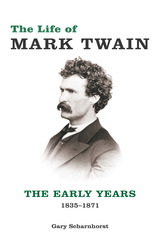
With dozens of Mark Twain biographies available, what is left unsaid? On average, a hundred Clemens letters and a couple of Clemens interviews surface every year. Scharnhorst has located documents relevant to Clemens’s life in Missouri, along the Mississippi River, and in the West, including some which have been presumed lost. Over three volumes, Scharnhorst elucidates the life of arguably the greatest American writer and reveals the alchemy of his gifted imagination.

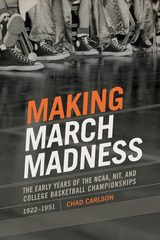
Throughout the NCAA Tournament’s history, underdogs, Cinderella stories, and upsets have captured the attention and imagination of fans. Making March Madness is the story of this premiere tournament, from its early days in Kansas City, to its move to Madison Square Garden, to its surviving a point-shaving scandal in New York and taking its games to different sites across the country.Chad Carlson’s analysis places college basketball in historical context and connects it to larger issues in sport and American society, providing fresh insights on a host of topics that readers will find interesting, illuminating, and thought provoking.

One of the foremost Russian writers of the Soviet period, Mikhail Bulgakov (1891-1940) has attracted much critical attention. But Edythe Haber is the first to explore in depth his formative years, to probe the roots of his artistic vision. Her study yields a new picture of the novelist and playwright working in tumultuous times, and a fresh understanding of his ultimate masterpiece, The Master and Margarita.
Bulgakov as writer was born out of the chaos of the Russian revolution and civil war. Haber shows how he mines his civil war experience for literary purposes, and how he molds and remolds his protagonist, transforming the tormented intellectual of the earliest fiction into a complex solitary hero. In achieving in his fiction a version of the creative self, an autobiographical hero, Bulgakov redefines such traditional moral categories as courage and honor. Blending biography and literary analysis of motifs, story, and characterization, Haber tracks one writer's answer to the dislocations of revolution, civil war, and early Bolshevism. And from her examination of Bulgakov's satirical writings a vivid panorama emerges of the burgeoning Soviet society. These comic sketches and novellas, blending the fantastic and quotidian, evoke an intellectual's struggle with a hostile new world. In Haber's trenchant and broadly informed analysis we can see how the themes and characters of the early works receive their final permutation--and transcendence--in The Master and Margarita, surely the finest novel produced in Russia since the Revolution.

Harrison Wright discusses aspects of the history of northern New Zealand with particular emphasis on the interaction between the Maori and Western societies. The explorers, traders, whalers, missionaries, and other Westerners who visited New Zealand are considered as the agents of change, and the Maoris are considered as they and their environment altered the expectations and activities of the Westerners who came to live among them.
The author first describes the nature and extent of the Western penetration into New Zealand; he then examines the depopulation noticeable after the Western penetration and its causes—the spread of contagious diseases and the introduction of Western war methods. In the third part of the book he studies the effects of Western society—particularly of the Christian missionary work and of the influence of the traders and whalers—on the Maori patterns of behavior.
In conclusion, Wright contrasts the happy situation at the time of the British annexation in 1840, when there was a high conversion rate and encouraging agricultural progress, with the years immediately following, when the Maoris began resentfully to sense that the missionaries were not able to fill for them the gaps left by a growing sophistication and the consequent rejection of old tribal and religious habits. For their part, the Europeans realized that they had underestimated the durability of Maori habits of thought and had been overoptimistic about changing the ways of a people with regard only for their own—European—goals.
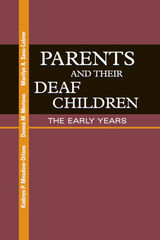
To correct the paucity of information on deaf or hard of hearing children and their parents’ experiences with early intervention services, researchers explored these relationships as part of the National Parent Project. From this investigation, Parents and Their Deaf Children details the experiences of a group of parents and their deaf children from the first identification of the latter’s hearing loss through their early years in elementary school. Renowned scholars Kathryn Meadow-Orlans, Donna Mertens, and Marilyn Sass-Lehrer reveal here for the first time the goals and expectations of the parents, the children’s achievements and troubles, and the families’ satisfaction and disappointment with health and educational systems.
Parents and their Deaf Children stems from a nationwide survey of parents with six-to-seven-year-old deaf or hard of hearing children, followed up by interviews with 80 parents. The authors not only discuss the parents’ communication choices for their children, but also provide how parents’ experiences differ, especially for those whose children are hard of hearing, have additional conditions, or have cochlear implants. Also, one chapter is devoted to families from minority cultures. The final section of this distinctive study offers solid advice for other parents of deaf children and also the professionals who serve them.
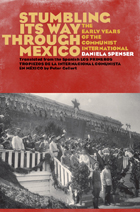
READERS
Browse our collection.
PUBLISHERS
See BiblioVault's publisher services.
STUDENT SERVICES
Files for college accessibility offices.
UChicago Accessibility Resources
home | accessibility | search | about | contact us
BiblioVault ® 2001 - 2024
The University of Chicago Press









